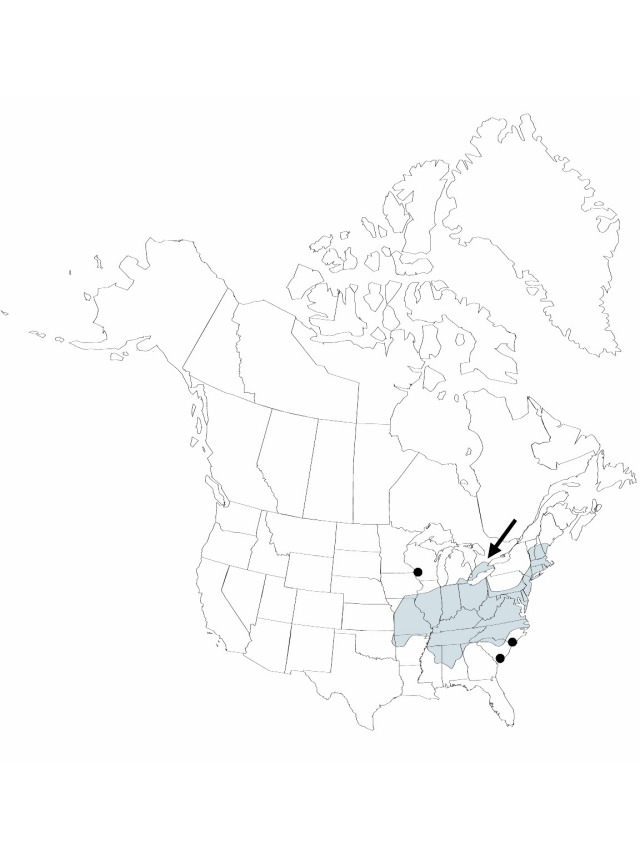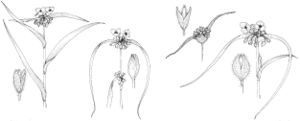Tradescantia virginiana
Sp. Pl. 1: 288. 1753.
Herbs, erect or ascending, rarely rooting at nodes. Roots (1.5–) 2–4 mm thick, fleshy. Stems 5–35 cm; internodes glabrous or occasionally distal internodes sparsely puberulent. Leaves spirally arranged, sessile; blade linear-lanceolate, 13–37 × 0.4–2.5 cm (distal leaf-blades equal to or narrower than sheaths when sheaths opened, flattened), apex acuminate, glabrous or occasionally puberulent. Inflorescences terminal and (rarely) axillary; bracts foliaceous, well developed, not saccate, sparsely to densely pilose. Flowers distinctly pedicillate; pedicels 1.2–3.5 cm, eglandular-pilose or puberulent; sepals ± inflated, 7–16 mm, uniformly eglandular-pilose; petals distinct, blue to purple, occasionally rose or white, broadly ovate, not clawed, 1.2–2 cm; stamens free; filaments bearded. Capsules 4–7 mm. Seeds 2–3 mm. 2n = 12, 24.
Phenology: Flowering spring–summer (Mar–Jul).
Habitat: Woods, thickets, fields, roadsides and railroad rights-of-way
Distribution

Ont., Ala., Ark., Conn., Del., D.C., Ga., Ill., Ind., Iowa, Ky., Maine, Md., Mass., Mich., Miss., Mo., N.H., N.J., N.Y., N.C., Ohio, Okla., Pa., R.I., S.C., Tenn., Vt., Va., W.Va., Wis.
Discussion
The records from the northern parts of the range of Tradescantia virginiana may all represent garden escapes (E. Anderson 1954). The uncertainty about the records from Arkansas and Mississippi reflects the difficulty in identifying some specimens. The specimens in question come from areas in which T. hirsutiflora (but not T. virginiana) has been recorded (E. Anderson and R. E. Woodson Jr. 1935). The exact geographic boundaries between these putatively allopatric species are uncertain. D. T. MacRoberts (1980b) has made a useful contribution toward our knowledge of these species.
Selected References
None.
